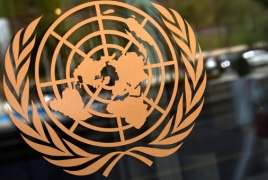
The third leg of the world's intractable depression is yet to come. If trade economists at the United Nations are right, the next traumatic episode may entail the greatest debt jubilee in history, The Telegraph says.
It may also prove to be the definitive crisis of globalized capitalism, the demise of the liberal free-market orthodoxies promoted for almost forty years by the Bretton Woods institutions, the OECD, and the Davos fraternity.
"Alarm bells have been ringing over the explosion of corporate debt levels in emerging economies, which now exceed $25 trillion. Damaging deflationary spirals cannot be ruled out," said the annual report of the UN Conference on Trade and Development (UNCTAD).
We know already that the poisonous side-effect of zero rates and quantitative easing in the U.S., Europe, and Japan was to flood developing nations with cheap credit, upsetting their internal chemistry and drawing them into a snare. What is less understood is just how destructive this has been.
Much of the money was wasted, skewed towards "highly cyclical and rent-based sectors of limited strategic importance for catching up," it said.
Worse yet, these countries have imported the deformities of western finance before they are ready to cope with the consequences. This has undermined what UNCTAD calls the "profit-investment nexus" that ultimately drives growth and prosperity, The Telegraph says.
The extraordinary result is that some countries are slipping backwards, victims of "premature deindustrialization". Many of them have fallen further behind the rich world than they were in 1980 despite opening up their economies and following the global policy script diligently.
The middle income trap closed in on Latin America and the non-oil states of the Middle East a long time ago, but now it is beginning to close in such countries as Malaysia and Thailand, and in some respects China. "The benefits of a rushed integration into international financial markets post-2008 are fast evaporating," it said.

